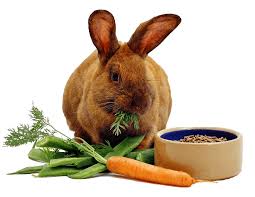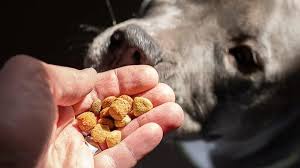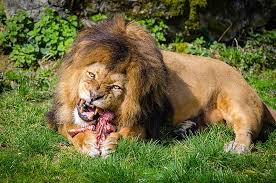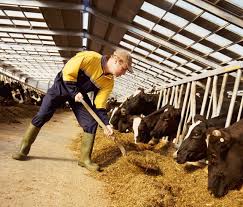Animal nutrition is a critical aspect of animal health and well-being. It involves understanding the dietary needs of different species to ensure they receive the essential nutrients required for growth, reproduction, and overall health.
This article covers the importance of animal nutrition, nutritional requirements for various species, types of nutrients, and the role of carbohydrates in animal diets.
Animal nutrition refers to the science of feeding animals to meet their dietary needs. It involves understanding how nutrients are utilized by different species and the impact of nutrition on health and productivity. Key points about animal nutrition include:
1. Balanced Diet: A balanced diet provides all essential nutrients needed for optimal growth and development.
2. Nutrient Sources: Animal nutrition considers both natural and supplemental feed sources to ensure adequate nutrient intake.
3. Species-Specific Needs: Different species have varying nutritional requirements based on their biology, size, and lifestyle.
4. Role in Health: Proper nutrition is essential for disease prevention, reproduction, and maintaining overall health.
5. Impact on Production: In agricultural settings, nutrition affects productivity, milk production, growth rates, and reproductive success.
Importance of Nutrition in Animal Health

Nutrition plays a vital role in maintaining animal health and enhancing productivity. Key reasons why nutrition is important include:
1. Disease Resistance: A well-balanced diet strengthens the immune system, helping animals resist infections and diseases.
2. Growth and Development: Proper nutrition supports healthy growth in young animals, ensuring they reach their genetic potential.
3. Reproductive Health: Adequate nutrition is crucial for reproductive success, affecting fertility rates and the health of offspring.
4. Performance Optimization: Nutrition impacts performance in livestock, influencing milk yield, weight gain, and work capacity in animals.
5. Quality of Life: Good nutrition contributes to overall well-being, improving the quality of life for pets and working animals.
Nutritional Requirements for Different Animal Species
Different animal species have specific nutritional requirements based on their physiology and lifestyle. Key species and their nutritional needs include:
1. Ruminants (e.g., cattle, sheep): Require high fiber diets, often from grasses and hay, along with concentrates for energy.
2. Monogastrics (e.g., pigs, poultry): Need protein-rich diets with a balance of carbohydrates, fats, vitamins, and minerals.
3. Horses: Require a high-fiber diet, primarily from forage, along with grains for energy and supplements for vitamins and minerals.
4. Dogs and Cats: Require protein from animal sources, with specific needs for vitamins and fatty acids based on their age and activity level.
5. Fish: Nutritional needs vary widely; species-specific feeds often include proteins, fats, and vitamins to meet growth and health requirements.
Types of Nutrients in Animal Nutrition
Animal nutrition encompasses various types of nutrients essential for health and growth. Key nutrients include:
1. Proteins: Essential for growth, tissue repair, and enzyme production. They are made up of amino acids, some of which are essential and must be provided through the diet.
2. Carbohydrates: Serve as the primary energy source for animals. They are broken down into simple sugars, which fuel bodily functions and physical activity.
3. Fats: Provide concentrated energy and aid in the absorption of fat-soluble vitamins. Fats are essential for maintaining healthy skin and coat.
4. Vitamins: Organic compounds required in small amounts for various metabolic processes. They play crucial roles in growth, reproduction, and immune function.
5. Minerals: Inorganic elements necessary for numerous bodily functions, including bone formation, nerve function, and muscle contraction.
Read Also: How Guava Fruits and Leaves Improve Female Fertility
Carbohydrates and Their Role in Animal Diets

Carbohydrates are a vital part of animal diets, serving as a primary energy source. Key roles of carbohydrates in animal nutrition include:
1. Energy Supply: Carbohydrates are the main source of energy for most animals, providing fuel for growth, reproduction, and daily activities.
2. Digestible Fiber: Fiber aids in digestion and promotes gut health by regulating bowel movements and preventing digestive disorders.
3. Blood Sugar Regulation: Carbohydrates help maintain stable blood sugar levels, which is crucial for overall health and energy balance.
4. Supporting Metabolism: Carbohydrates are involved in various metabolic processes, including energy production and fat metabolism.
5. Feed Efficiency: Including the right amount of carbohydrates in the diet can improve feed efficiency, allowing animals to convert feed into energy more effectively.
Here’s an article on Animal Nutrition that covers the roles of proteins, fats, vitamins, minerals, and water, with clear headings and bolded list numbers for easy reading.
Proteins and Amino Acids for Growth and Maintenance
Proteins are vital macromolecules composed of amino acids, which are the building blocks of body tissues. Key points about proteins and amino acids include:
1. Tissue Growth and Repair: Proteins are essential for building and repairing tissues in the body, including muscles, organs, and skin.
2. Enzyme Function: Many enzymes, which facilitate biochemical reactions, are proteins. They play crucial roles in digestion, metabolism, and other bodily functions.
3. Hormone Production: Certain proteins act as hormones, regulating physiological processes such as growth, metabolism, and reproductive functions.
4. Immune Function: Proteins are vital for producing antibodies that help the body defend against infections and diseases.
5. Amino Acids: There are 20 amino acids, 10 of which are essential and must be provided in the diet, while the body can synthesize the others. A balanced diet ensures that animals receive all necessary amino acids for optimal health.
Fats and Oils in Animal Nutrition
Fats and oils are concentrated sources of energy and essential fatty acids in animal diets. Key roles of fats and oils include:
1. Energy Source: Fats provide a more concentrated energy source than carbohydrates or proteins, making them important for energy-dense diets.
2. Essential Fatty Acids: Some fatty acids, such as omega-3 and omega-6, are essential and must be included in the diet for optimal health, supporting cell structure and function.
3. Vitamin Absorption: Fats are necessary for the absorption of fat-soluble vitamins (A, D, E, and K), which play crucial roles in various bodily functions.
4. Skin and Coat Health: Fats contribute to healthy skin and a shiny coat by providing moisture and preventing dryness.
5. Flavor and Palatability: Fats enhance the taste and smell of animal feed, improving palatability and encouraging feed intake.
Vitamins Essential for Animal Health
Vitamins are organic compounds required in small amounts for various bodily functions. Key points about vitamins include:
1. Essential Nutrients: Vitamins are crucial for growth, metabolism, and overall health. They cannot be synthesized by the body in sufficient quantities and must be obtained through the diet.
2. Water-Soluble Vitamins: These include vitamin C and B-complex vitamins, which are important for energy metabolism, nervous system function, and immune health.
3. Fat-Soluble Vitamins: Vitamins A, D, E, and K are fat-soluble and play significant roles in vision, bone health, antioxidant protection, and blood clotting.
4. Deficiency Risks: Vitamin deficiencies can lead to various health issues, including poor growth, immune dysfunction, and reproductive problems.
5. Supplementation: In some cases, vitamin supplements may be necessary to ensure adequate intake, especially in commercial animal production settings.
Minerals and Their Importance in Animal Diets
Minerals are inorganic elements that are essential for numerous physiological functions in animals. Key roles of minerals include:
1. Bone Development: Calcium and phosphorus are vital for developing and maintaining strong bones and teeth.
2. Electrolyte Balance: Minerals like sodium, potassium, and chloride help maintain fluid balance and support nerve and muscle function.
3. Enzyme Function: Many minerals act as cofactors for enzymes, aiding in metabolic processes and digestion.
4. Immune Function: Certain minerals, such as zinc and selenium, play critical roles in supporting the immune system and preventing diseases.
5. Deficiency and Toxicity: A balance is necessary, as deficiencies or excesses of minerals can lead to health problems, emphasizing the importance of proper dietary formulation.
Water: The Vital Nutrient
Water is often overlooked but is the most vital nutrient for all living organisms. Key points about water include:
1. Life Support: Water is essential for all bodily functions, including digestion, absorption, circulation, and temperature regulation.
2. Hydration Needs: Animals require a constant supply of fresh, clean water to stay hydrated, and inadequate water intake can lead to dehydration and health issues.
3. Nutrient Transport: Water helps transport nutrients and waste products in the body, ensuring that cells receive essential nutrients and can eliminate waste.
4. Body Temperature Regulation: Water plays a crucial role in regulating body temperature through processes like sweating and respiration.
5. Daily Requirements: The water needs of animals vary based on species, age, size, activity level, and environmental conditions. Ensuring access to water is fundamental to animal health.
Here’s an article on Animal Nutrition that covers energy requirements, feeding strategies, common feed ingredients, nutritional disorders, and advancements in research. Each section includes clear headings, with bolded list numbers for easy reading.
Read Also: 5 Amazing Health Benefits of Triphala (Three fruits)
Energy Requirements for Animals

Energy is a crucial component of animal nutrition. It fuels all biological processes and supports growth, reproduction, and maintenance. Key points about energy requirements include:
1. Basal Metabolic Rate (BMR): The energy needed for basic bodily functions at rest, such as breathing and circulation.
2. Maintenance Energy Requirements: The energy required to maintain body weight and support daily activities without growth or reproduction.
3. Growth Energy Requirements: The additional energy needed for growth in young animals, which is higher than that for maintenance.
4. Reproductive Energy Requirements: Energy needs increase significantly during pregnancy and lactation, supporting fetal development and milk production.
5. Activity Level: The energy requirements of animals also depend on their activity level. More active animals require more energy to sustain their activities.
Feeding Strategies for Different Life Stages
Different life stages of animals have unique nutritional needs. Understanding these needs is essential for effective feeding strategies. Key strategies include:
1. Young Animals: Nutrient-dense diets are essential for growing animals to support rapid growth and development.
2. Adult Maintenance: Adult animals require a balanced diet to maintain body condition and health without excessive weight gain.
3. Pregnant and Lactating Females: Pregnant and nursing females need increased energy and nutrient intake to support fetal growth and milk production.
4. Seniors: Older animals may require diets lower in calories but higher in fiber and specific nutrients to support aging bodies and maintain health.
5. Specialty Diets: Animals with specific health conditions may need specialized diets, such as low-protein diets for kidney disease.
Common Animal Feed Ingredients
Understanding common feed ingredients is essential for formulating balanced diets. Here are some key ingredients used in animal feed:
1. Grains: Corn, wheat, and barley provide a primary source of carbohydrates and energy.
2. Protein Sources: Soybean meal, canola meal, and fish meal are common protein sources that supply essential amino acids.
3. Forages: Hay and silage offer fiber, which is crucial for digestive health, especially in ruminants.
4. Fats and Oils: Animal and vegetable fats provide concentrated energy and essential fatty acids.
5. Minerals and Vitamins: Supplements are often added to ensure adequate intake of essential vitamins and minerals necessary for various bodily functions.
Nutritional Disorders and Deficiencies
Nutritional disorders can have serious implications for animal health. Key points include:
1. Deficiencies: Lack of essential nutrients can lead to health issues such as poor growth, weakened immune function, and reproductive problems.
2. Excesses: Over-supplying certain nutrients, particularly minerals, can lead to toxicity and health complications.
3. Common Disorders: Conditions like rickets (due to calcium and vitamin D deficiency) and ketosis (energy deficiency in lactating cows) highlight the importance of balanced nutrition.
4. Prevention: Regular monitoring of diet and health can help prevent nutritional disorders, ensuring that animals receive all necessary nutrients.
5. Nutritional Education: Educating caregivers and farmers about nutrition can help them identify and address potential issues before they become serious.
Advances in Animal Nutrition Research
Recent advancements in animal nutrition research have improved our understanding and practices. Key developments include:
1. Nutrigenomics: This field studies how nutrition affects gene expression, leading to more personalized and effective feeding strategies.
2. Alternative Ingredients: Research into alternative feed ingredients, such as insects and algae, provides sustainable options for animal nutrition.
3. Precision Nutrition: Advances in technology allow for more precise formulation of diets based on individual animal needs, improving efficiency and health.
4. Probiotics and Prebiotics: The use of probiotics and prebiotics to enhance gut health and nutrient absorption is a growing area of interest.
5. Sustainable Practices: Research focuses on sustainable feeding practices that minimize environmental impacts while maximizing animal health and productivity.
Animal nutrition is a complex and essential field that directly impacts animal health, growth, and productivity. By understanding the roles of proteins, fats, vitamins, minerals, and water, caregivers and farmers can provide balanced diets that promote overall well-being.
Proper nutrition supports optimal health, enhances productivity, and contributes to the sustainability of animal husbandry practices.
Understanding animal nutrition is fundamental to promoting health and well-being in various species. By recognizing the importance of nutrition, the specific dietary requirements of different animals, and the roles of various nutrients, caregivers and farmers can provide balanced diets that support growth, reproduction, and overall health.
Proper nutrition not only enhances the quality of life for animals but also contributes to the efficiency and sustainability of agricultural practices
Do you have any questions, suggestions, or contributions? If so, please feel free to use the comment box below to share your thoughts. We also encourage you to kindly share this information with others who might benefit from it. Since we can’t reach everyone at once, we truly appreciate your help in spreading the word. Thank you so much for your support and for sharing!.
Read Also: The Effect of Solid Waste on Business Environments
Frequently Asked Questions
We will update this section soon.

